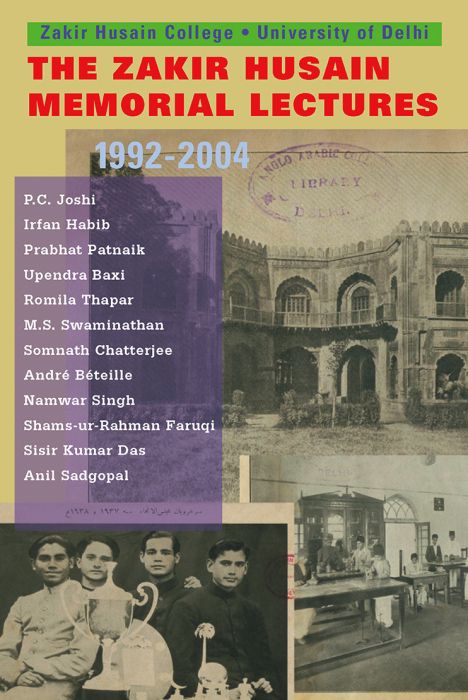The Zakir Husain Memorial Lectures 1992-2004
The Zakir Husain Memorial Lecture, held at Zakir Husain College each year, honours an eminent educationalist, nationalist and distinguished President of India. Dr. Zakir Husain was well aware of the historical contribution and contemporary significance of the College for higher education in modern India. The Memorial Lecture commemorates the vital role he played in the governance of the College in the pre- and post-Independence periods.
It is said that the twentieth century closed with the 'end of history', the demise of ideology and many certanties. However, a view has also emerged that the proclaimed demise of all certainties in itself has turned into a new orthodoxy, thereby necessitating the need to critically engage with all forms of received knowledge- old and new. The twelve Zakir Hussain Memorial Lectures collected in this volume seek to do precisely this - that is, interrogate a range of ideas that continue to inhabit and shape our contemporary intellectual space. These lectures grapple with critical issues that are at the heart of contemporary life: the nation-state, capitalism, modernity, globalization and a variety of representations - linguistic, cultural, pedagogical and historical. The writers are experts from different disciplines; they are firmly rooted in their subjects but they possess the macro vision to make connections with broader processes, expecially globalization, identity formation and democratization.

